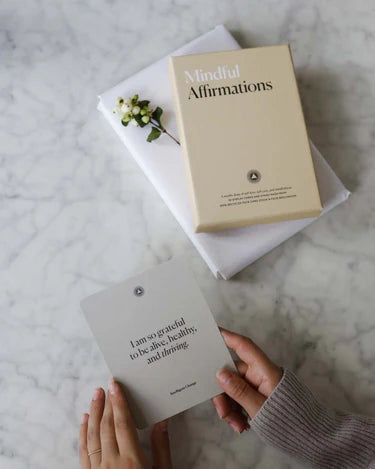8 Steps to Lower Your Stress in 5 Minutes
by Intelligent Change
When we talked about how to make stress your friend, we talked a lot about the effect that our personal narrative and outlook in life have on our daily stress levels. A lot of things can trigger stress––never-ending to-do lists, anticipation of the unknown, unexpected emergencies, relationship challenges, and so on.
The last 10 years have seen a strong rise in stress-related mental issues, such as depression and anxiety. That’s why we think it’s vital to learn tactics that can help us lower stress and develop resilience. Here’re a couple of tips on how you can reset your stress levels in less than five minutes.
Acknowledge That You’re Stressed
Naming your emotions and acknowledging how you feel can help you process and accept the stressful situation more easily. This might motivate you to seek a solution and help. Also, noticing that you’re stressed out will help you face your problems and make yourself––and your mental wellbeing–– a priority, which can result in some valuable life-lessons on how to do things differently next time.
Play Some Music
Relaxing sounds reduce our levels of perceived stress. The internet is full of relaxing music playlists and compilations, including nature sounds, white noise, meditation music, and anything else that helps you focus and relax. Sometimes, if your mood is off, a bit of uplifting music can do wonders.
Just Breathe: 4-7-8, Deep Breathing, or Hyperventilation
This kind of breathing exercise is an excellent quick replacement or precursor to meditation. It can help you relax in only a couple of minutes.
Here’s how to do it: sit on the floor or in your chair and hold your back straight. Breathe in as you count to 4, then hold your breath and count to 7. Finally, exhale as you count to 8. Repeat this as many times as you need to calm yourself. In our experience, 3 to 5 minutes are more than enough.
The other breathing exercise you can try is easier and requires you to only slow down your breathing pace to 6 breaths per minute. The point is to be present, conscious, and focused on each inhale and exhale.
Finally, practice anxiety tolerance by purposeful hyperventilating. It sounds counter-intuitive, but it will actually teach you to carry on despite the panic, and then the panic will go away.
Cool Down, Literally
If not in real life, you must have seen these scenes in movies when a character washes up their face with cold water, or holds their head under a cold shower long enough to calm down. Although it may seem extreme, it’s useful for pulling a trick on your body in extremely stressful situations. When you do this, your body thinks you’re diving, and activates a heart-slowing response, and consequently, your brain gets more blood.
In general, research has revealed that cooling down improves endurance, and it also can improve the endurance of our nerves.
Try to Smile
According to research by Paul Eckman, and also by many other psychologists who continued in his tradition, when you put a smile on your face, your muscles send information to your neural system, and soon your nerves start sending information back that it’s all good by producing endorphins and lowering your heart rate.
Free Up Your Mental Space
We experience so much during a single day, and sometimes we pile up stressful feelings and negative thoughts. Free up your mind by taking a piece of paper and writing it all down. You can even make this into a regular practice and work through your fears, anxieties, unconfirmed beliefs by gaining a new perspective once you put everything on paper. Looking for more journaling inspiration? Here's a list of 75 prompts.
Anchor Yourself
Well, here’s another seemingly weird suggestion: position yourself so that your heels are dug in the floor, literally anchoring yourself in a present moment. Now observe: What are your thoughts, feelings, impulses? Analyze your answers: Are you helping yourself with the present pattern? Are you in line with what you believe or are you dwelling on a past problem/worrying about the future?
Become aware of your stress, accept it, and proceed with the activity that helps you calm down, be it a walk in the fresh air, journaling, talking to a friend, or having relaxing tea.
Play With Passwords
This may sound unrelated at first, but there’s a story about a guy who used the password-changing technique to overcome his anger after divorcing his wife. He changed all of his passwords to Forgive@h3r, so every time he had to type his password he would be reminded that he needs to process what happened, and eventually it helped him overcome his anger and pain.
Passwords are something we type at least once a day, so pick something that will remind you to focus on the good, feel soothing for you, and help you distress (v@c@tioniscoming, for example).
While digging for the underlying reasons for why we’re so stressed out is useful and highly recommended, sometimes all we need is to get through the day. Try some of these 8 techniques for quick distressing, keep calm, and carry on.









